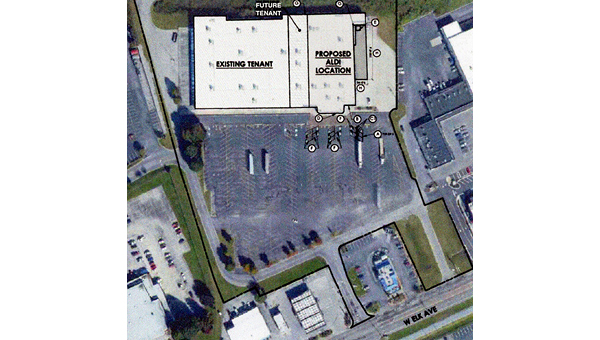The Elizabethton-Carter County Public Library is an asset to our community
Published 10:56 am Tuesday, September 5, 2023
|
Getting your Trinity Audio player ready...
|
At the heart of the Elizabethton community is the local public library. Even as technology continues to evolve, public libraries are more relevant than ever. The library is more than books! Did you know that the library has therapy dogs come every Thursday at 4 p.m….and you can sign up to read to them.
Every month, the library hosts a puzzle swap, and the library is currently hosting free computer classes. This Friday, from 5:30 to 6:30 p.m., there will be a class in computer basics.
Also, for persons interested in fiber arts, there is a fiber arts group which meets the first and third Mondays of each month from 5:30 to 7:30 p.m. for people who knit, crochet, and needlepoint. A game night is held every fourth Monday from 5:30 to 7:30 p.m. for persons interested in playing cards, Yahtzee, and board games.
These are just a few of the programs offered at the local library. These extra services are in addition to their focal point – books, computer labs, and doing research. The Elizabethton-Carter County PublIc Library has a meeting room for the public and various children’s programs.
The local library is a community hub that connects people to information as well as to people. It is a safe-haven for kids, providing after-school homework space as well as other activities. And, from time to time it offers computer classes, allowing older adults to stay engaged in a digital world. The local library also preserves and houses historical records available to the public.
Public libraries can spark heavy doses of nostalgia from past experiences: including searching for books, flipping through magical golden pages, attending events, renting tapes and DVDs, getting your library card, and using it to check out books while getting them stamped as a right of passage into independence.
We need to continue to patronize our local library as it is a vital part of our community. It remains one of the free spaces that provide public resources to all facets of the community. No matter where you come from or your social-economic status, you can access countless resources and services free of charge.
The Elizabethton-Carter County Public Library receives most of its funding from the local (city and county) government and smaller portions from other sources such as the state.
Although public libraries are free and accessible to all, they have not always been.
One of the early social libraries in America was founded in 1731 – Ben Franklin’s “Library Company.” The Library Company was created to share and trade books exclusive to upper-class white men. Black literary societies began emerging in the early 1800s beginning primarily with African American men and eventually growing into more unisex and other gender-specific groups. Members paid dues and met regularly to encourage and improve reading, writing, and speaking skills. Black literacy societies created their own agendas for social justice and human rights rather than waiting for legislative powers to grant them equal rights.
In 1896 the National Association For Colored Women’s Club (NACWC) was formed. They delivered books for children and communities in rural areas that could not access major cities. They invented the “Bookmobile” and regularly traveled to rural regions by car, horse, and buggies. They continued to advocate for better quality and more democratic public libraries. Their advocacy and public service serve as the blueprint for public libraries today. (Aberg-Riger, 2019)
Public library spaces emerged and yet remained segregated for decades. After much advocacy, library spaces became integrated but remained discriminatory towards black patrons. Freedom fighters continued to protest for years, and the Civil Rights Act of 1964 outlawed discriminatory practices in public spaces.
The plight towards democratic public libraries with quality services and resources was extraordinarily long and sacrificial.
According to the American Library Association (ALA), there are more American public libraries than Starbucks (more than 17,000). These libraries serve as community hubs that support and empower local community members’ social, political, and personal well-being.
Lastly, public libraries help communities practice reducing, reusing, and recycling. Public library resources are rentable; therefore, community members can cut back on personal carbon footprints by buying fewer products and reusing and sharing those offered from the library.
We are fortunate to have the Elizabethton-Carter County Public Library and its very helpful staff. It’s a fun way to spend an afternoon browsing through books, researching your family history, and taking your child to story time. Our library is an asset to the community.





